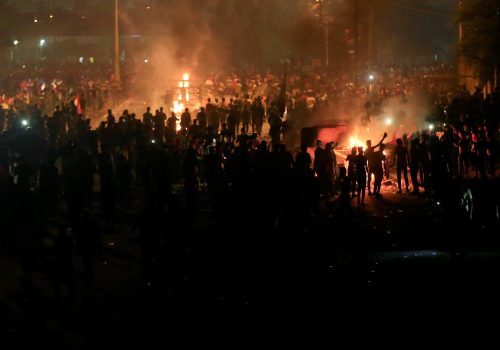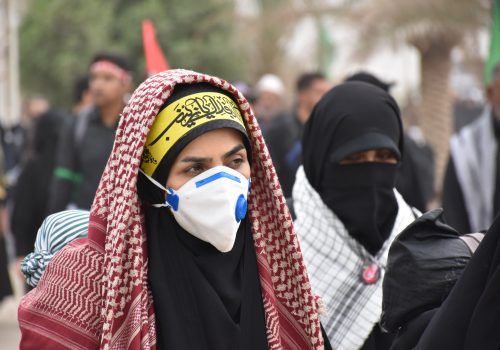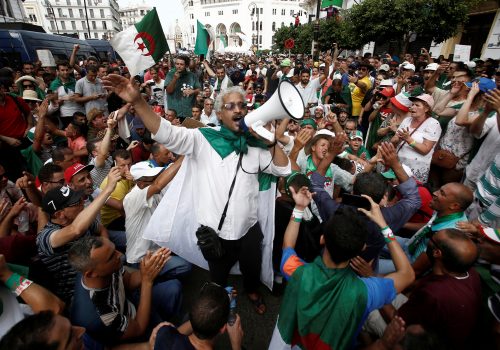What do the new protests in Iraq mean?
Protests intensified in Iraq on Friday, as Iraqi security forces fired tear gas and rubber bullets into the crowd to disperse thousands of demonstrators. Today’s demonstrations follow the deadly protests that broke out earlier this month, which resulted in 165 civilian fatalities and more than 4,000 injuries.
Atlantic Council experts react
Abbas Kadhim is the Director of the Iraq Initiative at the Atlantic Council.
Kadhim reacts: “Once people go to the streets with legitimate demands, it is too late — the trick is for the government not to adjust to the demands of the protesters, but to stop them from going to the streets ahead of time by understanding what they want. Once the protests start, it is a force on the street and most of the time the biggest beneficiaries are not the protesters, it’s anybody who has the skill to manipulate them to their own ends.”
C. Anthony Pfaff is a Nonresident Senior Fellow at the Atlantic Council.
“While protests in Iraq, even violent ones, over high unemployment and poor government services are not new, the scope, scale, and enduring nature of the current protests suggest that the Iraqi government, including the Parliament, have an unprecedented moment to push through real reform. Those reforms, of course, will bring their own pain. Unfortunately for both the government and the protesters, no reforms will turn the economy around or bring better services in the short term. Moreover, any meaningful reform will work against some entrenched interests, potentially sparking more protest. Having said that, business as usual is not an option anymore. Should the Iraqis decide to make the necessary sacrifices, the United States should consider what it can do to assist the Iraqi government in making those reforms, beyond current efforts that are largely focused on recovery.”
Thomas S. Warrick is a Nonresident Senior Fellow at the Atlantic Council.
“Prime Minister Adil Abdul-Mahdi is one of the most experienced and skilled Iraqi political leaders of his generation. His speech on television was an effort to reach out to a younger generation of Iraqis who don’t credit the Prime Minister’s generation with having done enough to improve their lives. If Iraq’s political class is unable to meet this challenge, the result could be a challenge to constitutional government, which would not be in the interest of Iraqis, the West, nor even Iran.”
Further Reading
Image: Demonstrators gesture at a protest during a curfew, three days after the nationwide anti-government protests turned violent, in Baghdad, Iraq October 4, 2019. REUTERS/Alaa al-Marjani


